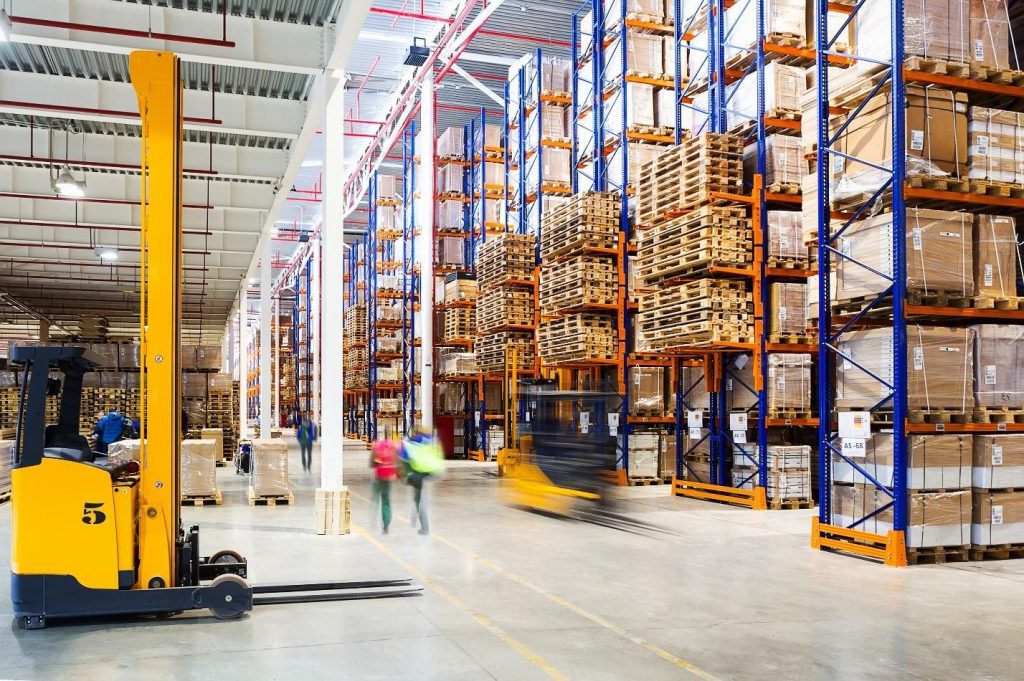No matter what line of business you’re in, you more than likely deal with logistics in one way or another. Otherwise known as operation management, logistics is all about how to organize and implement processes that flow from the point of origin to the final point of consumption.
The larger your organization is, the more complex your operations will be, with multiple moving parts that require detailed supervision in order to come together as a whole.
Thankfully, administrators who deal with logistics on an incredibly large scale are alleviated by technology that makes tracking and optimizing such a massive workflow possible.
Whether you’re an entrepreneur who’s started an online delivery agency and want to implement operational changes, or you’re looking to optimize processes at your third-party logistics (3PL) company, here’s a list of several tools you should use to your advantage in 2020.
Table of Contents
1. Warehouse Management System
Any ecommerce company—big or small—will need a warehouse management system (WMS) to make the execution of daily tasks more efficient. By implementing WMS software, you can shorten your cycles and streamline processes by:
- Automating orders with shopping carts
- Tracking every item in the warehouse from the cloud
- Directing inbound inventory for quick storage
- Creating repeatable and scalable workflows
A cloud-based system can transform paper-based businesses that are prone to errors into industry leaders. This is top priority in operation management considering that manual errors, lost inventory, and inaccurate orders can cost thousands of dollars each month. With this technology in place, you can prevent those problems from occurring, focus on customer satisfaction, and accelerate growth to improve your bottom line.
2. Transportation Management System
Work in the warehouse—like managing inventory, scanning barcodes, and fulfilling orders—is just one small portion of supply chain logistics. The next area of operation business owners should support with technology is the shipment of orders from the warehouse to the delivery destination.

This requires software that helps managers build loads they can execute and provides the best options for delivery route while taking all requirements into account. Intuitive platforms can be used by all transportation professionals and are powerful enough to handle even the most complicated projects.
Some key features may include:
- Access to multiple rate options that factor in weekly fuel costs and contract terms
- Visibility tools that ensure shipment transparency
- Freight settlement features that enable automatic claim filing
An advanced transportation management system (TMS) should be able to factor in real-world constraints from the beginning to the end of an order, saving businesses both time and money. When conditions change, these platforms update and show you the effect of such changes on the routes, including whether a new route should be considered.
Ultimately, you need a TMS in place to ensure the best possible freight rates and clear portals between vendors, carriers, and customers. By streamlining this communication through the help of an IT partner, you can increase efficiency and accuracy, thereby delivering best-in-class customer service.
Human Capital Management System
When you’re managing operations and logistics, you probably need to supervise employees spread across multiple locations. It can be difficult to keep track of who’s where, let alone ensuring your staff remains engaged and motivated.
Human capital management (HCM) systems improve the experience of employees—a business’s best asset—by weaving people’s data through a software platform. Every HCM system is different, but they assist the duties of HR professionals by streamlining:
- New employee information and onboarding
- Payroll, promotions, and compensation changes
- Time off requests and upcoming vacation schedules
- Employee directories and organization charts
- Public recognition for good work
These features not only benefit workers and their managers, but the entire enterprise can learn from HR analytics that provide an overview of head count trends, turnovers, segmentations, and subsidiaries. This enables leaders to make strategic business choices while retaining their top talent.Remember, you don’t need to be Amazon or Microsoft to prioritize operation management. Even small businesses can leverage logistics to improve their day-to-day workflow. Learn from the big guys and take note on how to be technologically proactive. If you continuously implement the latest tools and innovations, you can ensure you stay toe to toe with the competition.

